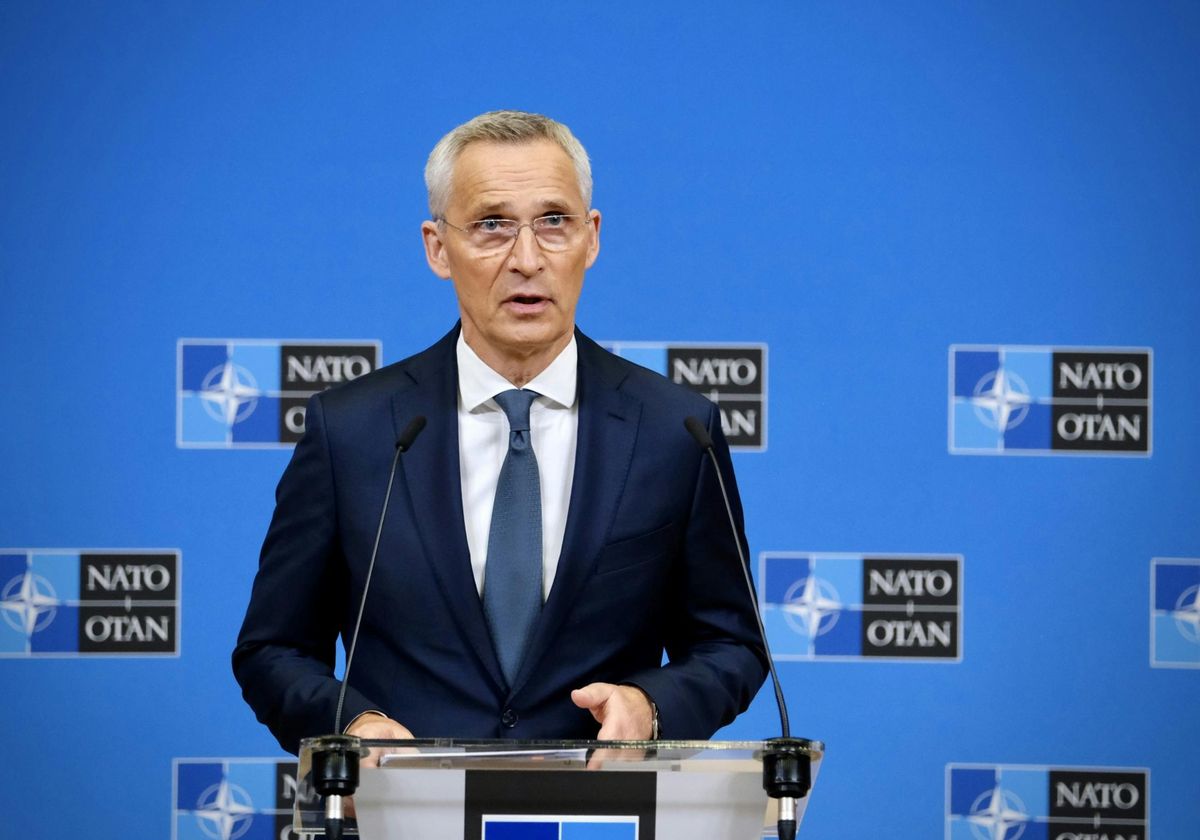NATO's China Agenda: Concrete Actions at Vilnius Summit

The Lede: NATO is expected to discuss security challenges posed by China at the summit in Vilnius, Lithuania, next week, as part of its Strategic Concept that the alliance adopted a year ago in Madrid.
What we know:
- The Madrid Summit Declaration, issued by NATO Heads of State and Government during the meeting of the North Atlantic Council in Madrid in 2022, states that the alliance faces “systemic competition” from China which challenges their “interests, security, and values” and seeks “to undermine the rules-based international order”.
- On the brink of a crucial summit and amid escalating tensions between the West and China, France has been opposing the expansion of NATO's influence into Asia. It includes the establishment of a liaison office in Japan which would serve as their inaugural presence in the region, Politico reported this week. But France thinks it would shift NATO’s focus too far from North Atlantic, losing its geographic attachment.
- China has agreed with Macron’s statement, noting most Asian countries also “oppose the emergence of military blocs in the region” as it might mean “interfering in regional affairs and inciting bloc confrontation.”
- Last month, NATO announced its intention to enhance cooperation with four key partners in the Indo-Pacific region, Australia, Japan, New Zealand, and South Korea. NATO plans to strengthen ties with these countries through the implementation of the Individually Tailored Partnership Programme (ITPP), the South China Morning Post reported.
- The Vilnius Summit comes as Chinese President Xi Jinping has called for strengthening war and combat planning within the military to increase the likelihood of victory in actual battles, Chinese state agency Xinhua reported. He reiterated the significance of safeguarding China's sovereignty and territory, urging the troops to remain vigilant and dedicated in their defense efforts and adding that “military issues must be considered and handled from a political perspective.”
The background: China was barely on NATO’s radar a couple of years ago. In 2019, NATO Secretary General Jens Stoltenberg said the alliance was not going to move into the South China Sea, but it was important to acknowledge that China has been moving closer to NATO. Since then, two major geopolitical events have shifted the alliance’s perspective. First, Russia invaded Ukraine and created, what many think, is an example for other authoritarian regimes to follow. Last year, Stoltenberg said, “Beijing is watching closely, and learning lessons, which may influence its future decisions," referring to Xi Jinping’s threats to invade Taiwan. Since the beginning of the war in Ukraine, NATO as an alliance has also been reluctant to engage with Beijing, mainly because of its close ties with the Kremlin and allegations of supporting the war.
Secondly, over the years China became the number one strategic threat to NATO’s most powerful member – the United States. The latter has had a stricter stance, compared to its European counterparts, many of whom heavily depend on China in trade.
Approximately 10% of Europe's total exports are destined for China, while China accounts for roughly 20% of Europe's total imports. Being the third largest trading partner of China within the European Union, France contributes to approximately 10% of the overall trade volume between China and the EU.
China's rise as a global power and its ambitions to reshape the international order have raised concerns among NATO member states. Issues such as China's military modernization, assertive territorial claims, technological advancements, and economic influence have prompted NATO to reevaluate its strategic priorities.
Likely outcomes/Takeaway:
- The Vilnius summit is expected to mostly focus on the war in Ukraine. But the alliance is also likely to assess the evolving geopolitical landscape and China's growing assertiveness, especially in the Indo-Pacific region.
- Next week’s summit will serve as a platform to showcase NATO's current understanding of the challenges presented by China. It will also provide an opportunity to assess how the alliance's stance and discourse on this matter have evolved over the past year. While there may be differing viewpoints among NATO member states, the summit will provide an opportunity to bridge those gaps and find common ground on addressing China's rising influence.
- The discussions and outcomes of the summit will shape NATO's perspective, strategies, and potential actions in response to the challenges posed by China in the years ahead.
Quotables:
- “We have seen NATO bent on going east into this region, interfering in regional affairs and inciting bloc confrontation,” Chinese Foreign Ministry spokesman Wang Wenbin. “The majority of Asian countries … oppose the emergence of military blocs in the region. They don’t welcome NATO’s outreach in Asia.”
- “We should not make the same mistake with China and other authoritarian regimes. What is happening in Europe today could happen in Asia tomorrow,” NATO Secretary General Jens Stoltenberg.
- “These Indo-Pacific countries, they have a unique experience engaging with the PRC and can bring some valuable perspective to that discussion,” National Security Council spokesperson John Kirby told Voice of America.
Good Reads:
At Vilnius Summit, NATO to Seek Concrete Actions on China (Voice of America)
NATO’s Next Decade: Nine thinkers assess the alliance’s future ahead of a historic summit (Foreign Policy)
NATO, CHINA, AND THE VILNIUS SUMMIT (War on the Rocks)
